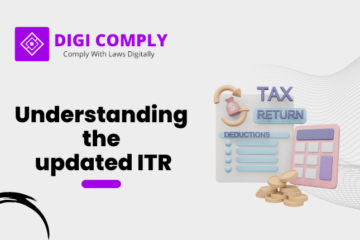Companies operating in the UAE are subject to various audit requirements, which depend on their jurisdiction and location. While mainland companies are mandated by law to undergo financial audits, free zone companies have more flexibility in this regard. However, it is highly recommended for all companies, including those not legally required to do so, to consider conducting audits voluntarily to ensure the health and stability of their operations. This article explores the audit requirements in the UAE, the differences between mainland and free zone companies, and the benefits of conducting audits.
Audit Requirements in the UAE:
According to the Commercial Companies Federal Law No.32 of 2021, mainland companies in the UAE are legally obligated to have their financial accounts audited. These companies must maintain their financial records for a minimum of five years to comply with the regulatory requirements. In contrast, free zone companies (FZCO) and free zone establishments (FZE) are generally exempt from mandatory audits and are not required to submit audit reports. However, specific entities within free zones may still have to undergo auditing based on their legal framework or future immigration requirements.
Importance of Auditing for Companies:
Even if not mandated, it is highly advisable for companies to undergo audits to identify and rectify any underlying issues that could be detrimental to their operations. It is crucial to engage the services of authorized audit firms, ensuring that the chosen firm possesses the necessary expertise and authorization to conduct audits effectively.
Mainland vs. Free Zone Auditing:
Understanding the differences between mainland and free zone jurisdictions is essential to grasp the auditing requirements in the UAE. Mainland refers to areas outside of the free zones, where onshore companies operate. These companies obtain licenses from the Department of Economic Development or relevant authorities in the UAE. While there are several advantages to operating on the mainland, foreign individuals must have a local sponsor who holds at least 51% ownership of the business.
On the other hand, free zones in the UAE operate under their own rules and regulations. Foreign individuals starting a business in free zones enjoy benefits such as 100% ownership without the need for local sponsorship. Free zones are often industry-specific, catering to the requirements of particular sectors. While companies in free zones are not obligated to submit audit reports, they need to comply with tax regulations accurately, making audit reports crucial for tax compliance purposes.
Benefits and Reasons for Auditing:
Maintaining accurate accounting records and conducting audits provide several benefits for companies operating in the UAE. Audits offer insights into the financial health of the company, identifying areas that require attention and suggesting strategies for future improvement. Audited financial statements provide a clear picture of the company’s performance and net worth, facilitating effective management decisions. Additionally, audits may be required by third parties such as lenders, dealers, and suppliers to ensure the company’s financial stability and creditworthiness.
Conclusion:
While the UAE imposes audit requirements on mainland companies, free zone companies have more flexibility in this regard. Nonetheless, it is highly recommended for all companies, regardless of legal obligations, to consider conducting audits to ensure the stability and growth of their operations. Engaging the services of authorized audit firms is crucial to obtaining accurate and reliable audit reports. By adhering to auditing regulations and maintaining transparent financial records, companies in the UAE can gain valuable insights into their performance and make informed business decisions.
If You have any queries then connect with us at support@legalsuvidha.com or info@digicomply.in & contact us & stay updated with our latest blogs & articles





